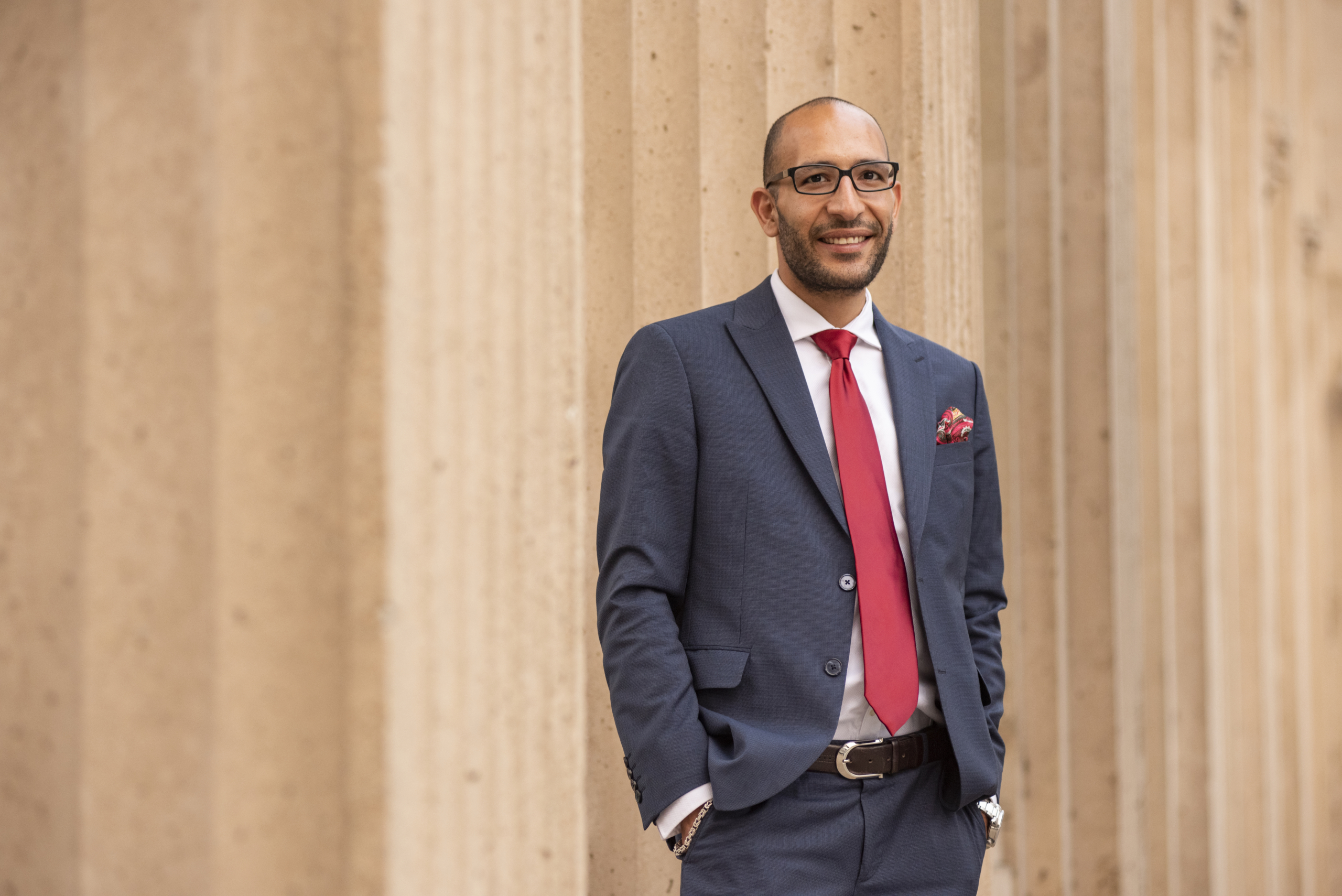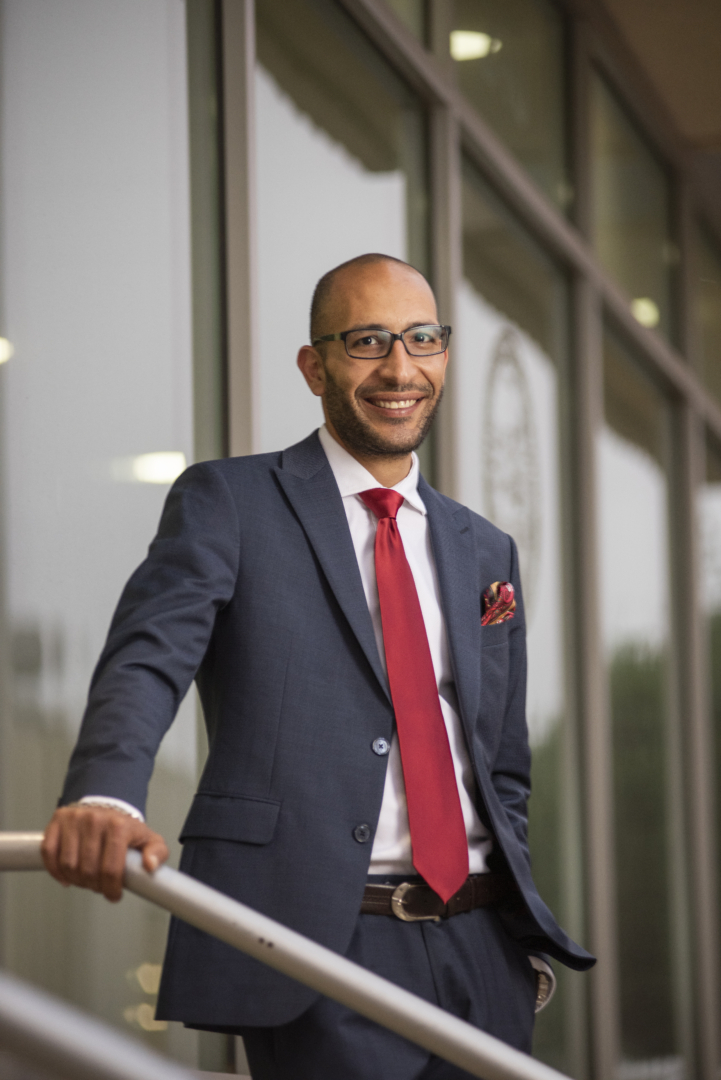Public Defender Fights For the Rights of the Underdog

Shadee Mouse of the Monterey County Public DefenderÕs Office at the Salinas Courthouse 10/1/20
This is one of four profiles marking the 50th anniversary of the Community Legal Information Clinic. As each alumni lawyer can attest, the program fosters a love of law that often leads to thriving careers. All of the profiles can be accessed in our 50-year tribute.
Shadee Mousa’s inspiration to become a lawyer formed within the walls of the Placer County Probation Juvenile Detention Facility—where he was booked at age 17 on suspicion of aiding and abetting arson.
While Mousa didn’t physically light the blaze (his friend ignited an abandoned couch near some railroad tracks), the Placer County District Attorney used his involvement as an example of the dangers of teenagers with too much time on their hands.
“I was a 17-year-old, goody two-shoes kid with a 3.8 GPA who did something stupid,” he said. “All of a sudden, I land myself in juvenile hall.”
While the district attorney sought six years for Mousa at a detention center for the state’s most serious youth offenders, his father hired a lawyer to defend his son. Mousa saw his attorney—whose efforts led to a sentence of probation only—as someone who would fight for the underdog.
“I’ll never forget him putting his hand on my shoulder, the warm hand of somebody who was my dad’s age, there to fight for me,” he said. “That alone was so comforting.”
For Mousa (Political Science, ’08), that experience confirmed that he too wanted to play a role to fight for the less fortunate, disadvantaged, and downtrodden. Currently a deputy public defender in Monterey County, he works tirelessly every day where he sees himself having the most impact.
Representing cases ranging from petty theft and domestic violence to driving under the influence, robbery, and murder, Mousa is typically assigned two or three cases per week—sometimes more, depending on the time of year. His week consists of two days in court and three days at his office or seeing clients in jail, providing professional expertise and personal support.

Mousa still remembers one of his first opportunities to be a comforting hand, advocating for a client with CLIC’s County Jail Law Project. As a student intern, he was helping an individual who had been booked at Butte County Jail and charged with making criminal threats. Mousa’s work consisted of researching the charges, identifying related cases, and helping the man’s public defense attorney build their case—all from within the confines of a makeshift “office” at the county jail.
“Imagine a jail cell, and then half of that was caged off, where the CLIC employee would work with their computer and some resources behind them,” he said. “It was a cage within a cage.”
Mousa’s client claimed innocence—and Mousa believed him. After multiple meetings, hours of research, and sharing his findings with the attorney, who presented them in court, the case was dismissed.
“It turned out he was innocent,” Mousa said, adding that there was perhaps no more rewarding feeling than the achievement of true justice.
Meeting clients face to face, listening to their stories, and seeing their humanity up close has always struck Mousa. It means getting to know the human being behind the purported crime—because there will always be one.
Even when defending clients he knows are guilty, Mousa applies a similar approach to find the reason the crime was committed and determine a possible defense or negotiate a better deal. No matter the crime or the circumstances, he believes everyone deserves equal justice and adequate representation under the law.
“Even if they’re convicted, they’re still a member of the community,” Mousa said. “These people should have zealous, aggressive people that fight for their rights—because one day, it could be you.”


